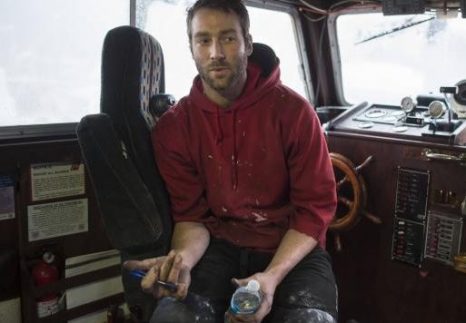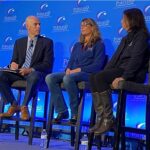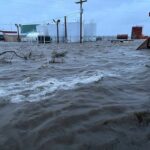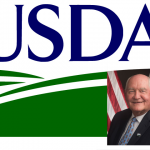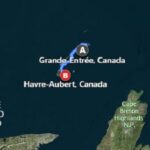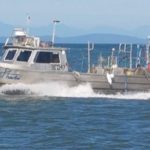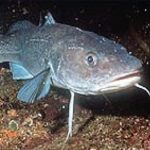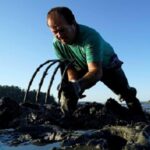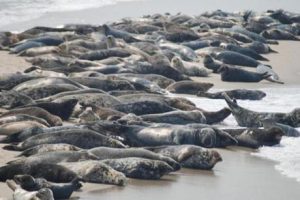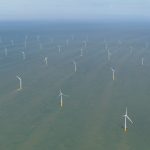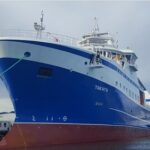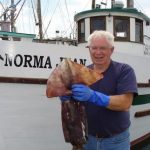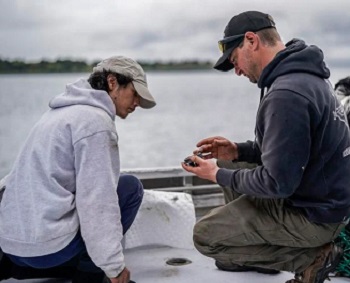 Lane Bolich first came to work in Alaska for the freedom and excitement that comes with being a fisher. A self-described adrenaline junkie, Bolich moved from his hometown in rural Washington state because he loves being on the ocean even in cold winter weather and it gave him the chance to make more money than back home. After working as a deckhand for two years on a family friend’s boat, Harmony, he took the wheel as captain this year at just 20 years old. Bolich is a rarity in an aging industry with high barriers to entry, equipment and access rights are costly, and increasing unpredictability as human-caused climate change alters marine habitats. As some fish populations dwindle and fewer people pursue the trade, fishers and conservation groups are actively working to bring in and retain the next generation of fishers through grants and training even as the industry continues to shrink in Alaska. 19 photos, >>click to read<< 09:38
Lane Bolich first came to work in Alaska for the freedom and excitement that comes with being a fisher. A self-described adrenaline junkie, Bolich moved from his hometown in rural Washington state because he loves being on the ocean even in cold winter weather and it gave him the chance to make more money than back home. After working as a deckhand for two years on a family friend’s boat, Harmony, he took the wheel as captain this year at just 20 years old. Bolich is a rarity in an aging industry with high barriers to entry, equipment and access rights are costly, and increasing unpredictability as human-caused climate change alters marine habitats. As some fish populations dwindle and fewer people pursue the trade, fishers and conservation groups are actively working to bring in and retain the next generation of fishers through grants and training even as the industry continues to shrink in Alaska. 19 photos, >>click to read<< 09:38
Tag Archives: Alaska Marine Conservation Council
Alaska’s declining crab population due to trawlers catches attention of lawmaker
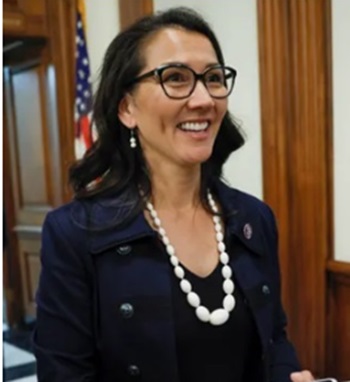 Alaska Rep. Mary Peltola’s mounting frustration with the largely Seattle-based pollock industry’s decades-old issue of inadvertently damaging the state’s rapidly declining crab populations and critical habitat for many other species may result in legislation a move heralded by the scientific and conservation communities. Members of the scientific community concerned with sustainability and conservation are currently in a deadlock with industrial pollock trawler fleets and the North Pacific Fishery Management Council over federal fishery regulations, including pelagic, or “mid-water” trawling, which uses wide-mouthed nets designed to target schools of Bering Sea Alaskan pollock. The Alaska Marine Conservation Council released a report in February 2023 analyzing the trawlers’ impact on red king crab habitats following the 2022 closure of the Alaska snow crab fisheries, which is still ongoing, and a two-year closure for Bristol Bay king crab that ended in 2023, underscoring the devastating environmental and financial toll. more, >>CLICK TO READ<< 19:17
Alaska Rep. Mary Peltola’s mounting frustration with the largely Seattle-based pollock industry’s decades-old issue of inadvertently damaging the state’s rapidly declining crab populations and critical habitat for many other species may result in legislation a move heralded by the scientific and conservation communities. Members of the scientific community concerned with sustainability and conservation are currently in a deadlock with industrial pollock trawler fleets and the North Pacific Fishery Management Council over federal fishery regulations, including pelagic, or “mid-water” trawling, which uses wide-mouthed nets designed to target schools of Bering Sea Alaskan pollock. The Alaska Marine Conservation Council released a report in February 2023 analyzing the trawlers’ impact on red king crab habitats following the 2022 closure of the Alaska snow crab fisheries, which is still ongoing, and a two-year closure for Bristol Bay king crab that ended in 2023, underscoring the devastating environmental and financial toll. more, >>CLICK TO READ<< 19:17
As climate change and high costs plague Alaska’s fisheries, fewer young people take up the trade
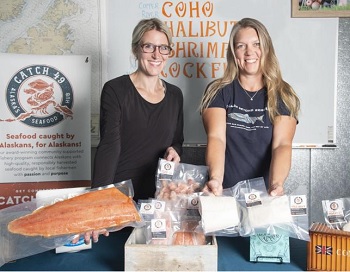
Celebrating Small Business: Catch 49 keeping Alaskan fishing local
The brainchild of the Alaska Marine Conservation Council (AMCC), Catch 49 has been working with small-scale fishermen along Alaska’s coastline to provide sustainably-sourced seafood options to the community since 2011. Operating under one of AMCC’s guiding principles, “fisheries management policies should ensure adequate, intergenerational access to fishing opportunities for local residents and communities,” Catch 49 prides itself on providing business opportunities to coastal residents. >click to read< 15:01
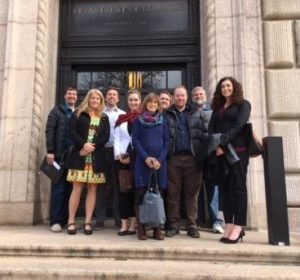
Alaska Fishing Delegation Heads To Washington
Representatives of the Alaska Longline Fishermen’s Association and the Alaska Marine Conservation Council– both members of the nationalFishing Communities Coalition (FCC) – were in Washington, DC, this week urging lawmakers to resist shortsighted efforts to weaken fishing communities by undermining key Magnuson-Stevens Act accountability provisions.,,, “The MSA is working in Alaska and around the country because all sectors adhere to scientifically-sound annual catch limits. >click to read<09:54
Gulf of Alaska fishermen wary of Congressional intrusion into council process
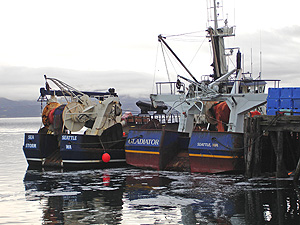 Editor’s note: Stephen Taufen of Groundswell Fisheries Movement did not write the petition distributed by AMCC. This article refers to a separate memo of his own distributed to interested parties in which he alludes to Rep. Beutler. Gulf of Alaska fishermen suspect that Washington, D.C., politics might come into play for fisheries regulations they want left to the North Pacific Fishery Management Council. A letter circulated by the Alaska Marine Conservation Council and signed by 250 Gulf of Alaska fishermen and residents was sent to each of Alaska’s three congressional delegation members. The letter asks that the Alaska’s representatives in the nation’s capital oppose any legislation intended to press Gulf of Alaska fisheries regulations. “Specifically, we request our Alaska delegation to support development of a Gulf of Alaska Trawl Bycatch Management Program (aka catch share) in the Council process so all stakeholders may contribute to a transparent process,” the letter asks. Read the rest here12:05 Additional information by scrolling to the comment section.
Editor’s note: Stephen Taufen of Groundswell Fisheries Movement did not write the petition distributed by AMCC. This article refers to a separate memo of his own distributed to interested parties in which he alludes to Rep. Beutler. Gulf of Alaska fishermen suspect that Washington, D.C., politics might come into play for fisheries regulations they want left to the North Pacific Fishery Management Council. A letter circulated by the Alaska Marine Conservation Council and signed by 250 Gulf of Alaska fishermen and residents was sent to each of Alaska’s three congressional delegation members. The letter asks that the Alaska’s representatives in the nation’s capital oppose any legislation intended to press Gulf of Alaska fisheries regulations. “Specifically, we request our Alaska delegation to support development of a Gulf of Alaska Trawl Bycatch Management Program (aka catch share) in the Council process so all stakeholders may contribute to a transparent process,” the letter asks. Read the rest here12:05 Additional information by scrolling to the comment section.
Groups hope MSA update won’t move fish conservation ‘backwards’
A number of regional fishing associations are joining forces to strengthen the Magnuson-Stevens Act. The Sitka-based Alaska Longline Fishermen’s Association announced last week (9-9-14) that it’s reached an agreement with the Alaska Marine Conservation Council and several east-coast industry groups to form the Fishing Community Coalition. Read the rest here 21:25
Compass: Support for Alaska fishermen does good from boat to table
![]() Not all seafood is created equal; this is a truth Alaskans know deeply. In Anchorage, we live at the epicenter of the some of the most abundant, diverse and well-managed fisheries on Earth. Many of us don’t rely on restaurants or markets in town to put seafood into our bellies. continued
Not all seafood is created equal; this is a truth Alaskans know deeply. In Anchorage, we live at the epicenter of the some of the most abundant, diverse and well-managed fisheries on Earth. Many of us don’t rely on restaurants or markets in town to put seafood into our bellies. continued
Partnerships for Fisheries Innovation, Growth, and Change: An Update on Travels to New England, Collaboration with the Community Fisheries Network & Other Inspiring Fisheries Organizations
A team from AMCC along with other Alaskan fishing friends embarked on an amazing voyage to Maine and Boston in early March. I accompanied the “Kodiak contingent” which included Dave Kubiak, AMCC’s board chair, Theresa Peter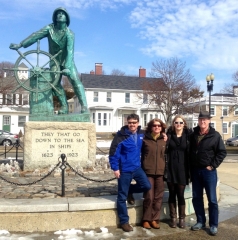 son, AMCC’s Kodiak Outreach Coordinator, and Darius Kasprzak, President of the Alaska Jig Association. All three of the Kodiak group are active fishers, which gave our group lots of “fish cred” to carry with us as we headed east. Linda Behnken, President of the Alaskan Longline Fishermen’s Association and a member of AMCC’s Board of Advisors also went on trip. continued
son, AMCC’s Kodiak Outreach Coordinator, and Darius Kasprzak, President of the Alaska Jig Association. All three of the Kodiak group are active fishers, which gave our group lots of “fish cred” to carry with us as we headed east. Linda Behnken, President of the Alaskan Longline Fishermen’s Association and a member of AMCC’s Board of Advisors also went on trip. continued






